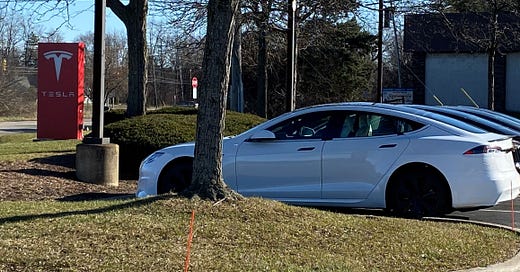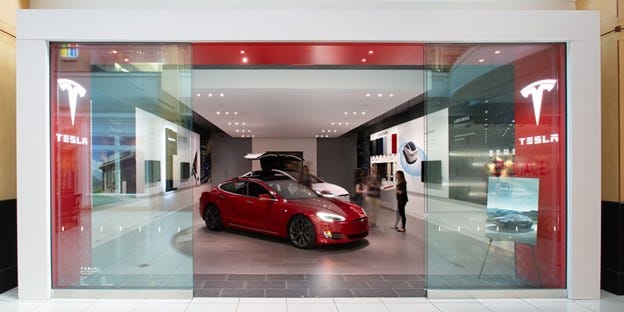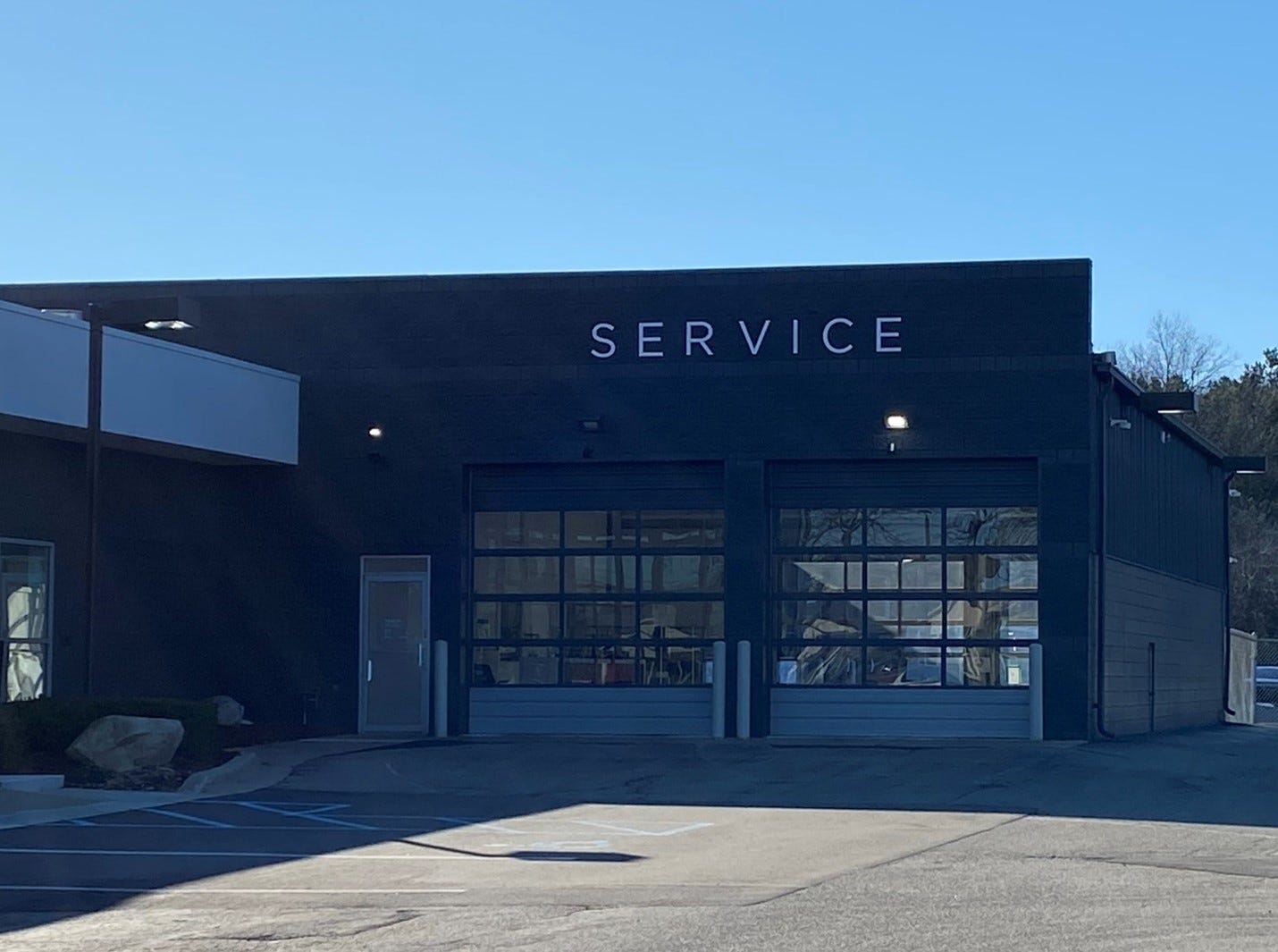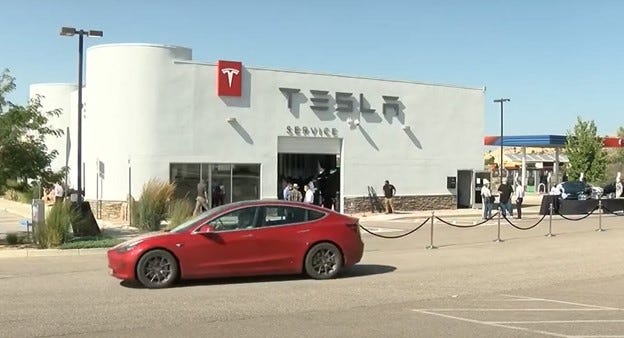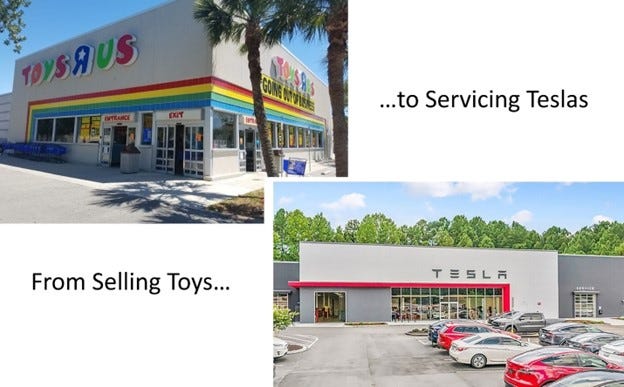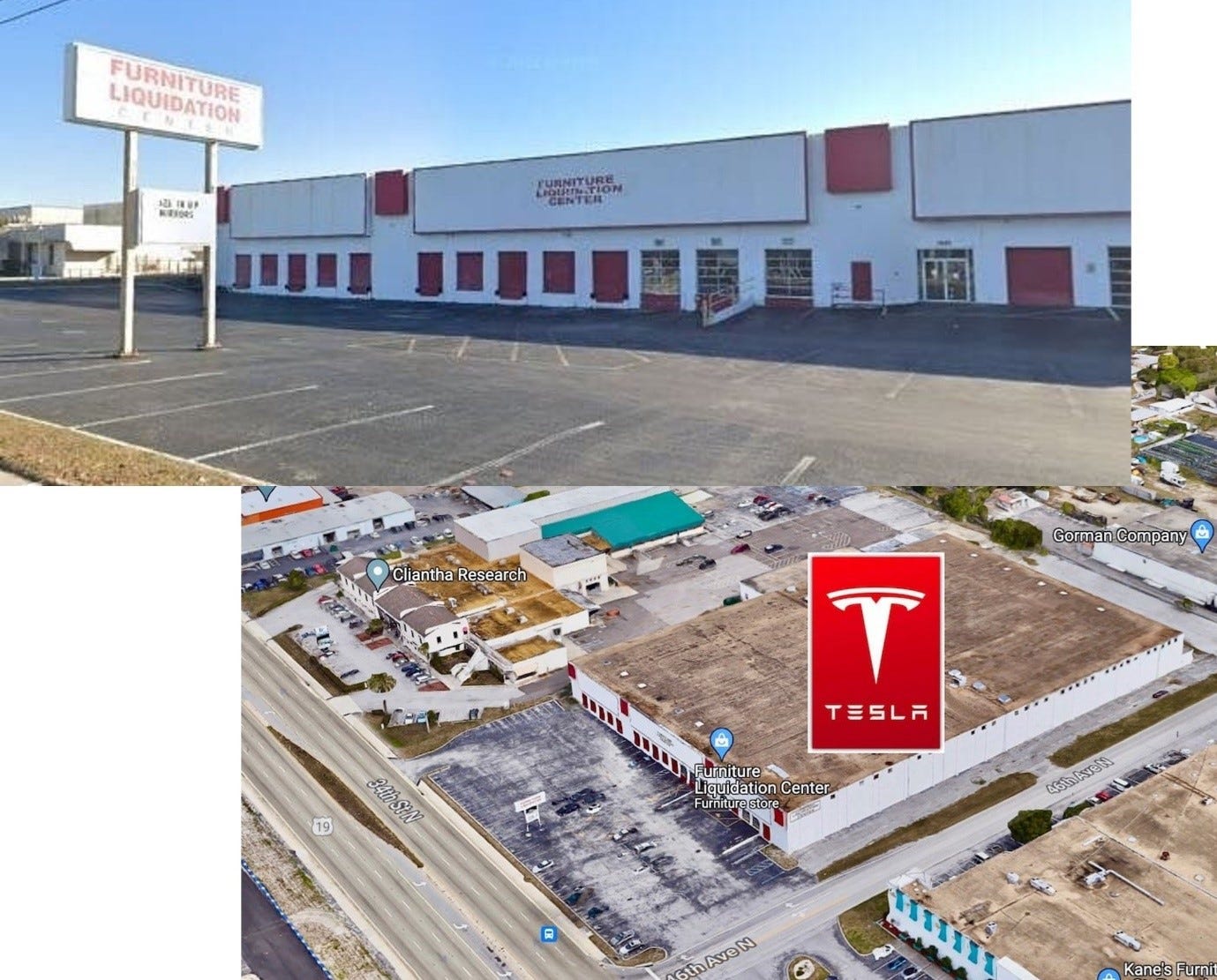Tesla's Real Estate Strategy: Mall Galleries, Big Box Buildings and Sites on Tribal Lands.
A Tesla Service Center opened last year in a former Toys R Us in Ohio - an example of the auto manufacturer's use of unconventional real estate to sell and service its vehicles.
A #Tesla Service Center opened last year in a former Toys R Us just outside of Akron, Ohio.
It is one of approximately 170 service centers that Tesla operates in the U.S.
But new vehicles cannot be sold at this location.
Ohio is one of several states where dealer franchise laws ban or restrict direct sales by auto manufacturers like Tesla.
Tesla has navigated this patchwork of state franchise laws by utilizing non-traditional and unconventional real estate - such as operating "galleries" in Class A shopping malls, converting vacant Big Box retail space into service centers, and even locating on tribal lands.
While Ohio ultimately agreed that Tesla could conduct limited direct sales out of just three dealerships in the state, other states have insisted on more convoluted methods for Tesla to sell vehicles - or have still yet to act at all.
In Michigan, Tesla filed suit in 2016 to overturn the state's ban on direct sales of vehicles by manufacturers.
A 2020 settlement was reached that permits Tesla to sell vehicles in the state – but the vehicles first have to be titled in another state and then transferred to Michigan.
The same situation applies in Texas, another state that bans direct sales by auto manufacturers.
Texas also happens to be the home of one of Tesla's newest Gigafactories.
So even Tesla vehicles that are manufactured in Texas must first be shipped outside the state before they can be bought by Texas residents.
Tesla’s initial real estate plan was to operate “galleries” in states that ban direct sales.
These galleries were generally opened in Class A shopping malls – unconventional real estate for selling automobiles.
But Tesla was restricted from selling vehicles, arranging test drives or even discussing prices or financing at these galleries.
And it obviously could not offer vehicle service at these sites.
Providing customers with accessible service options for its vehicles has become an issue for Tesla, especially without a large physical dealership presence across the country.
Initially Tesla handled service by using a fleet of approximately 1,000 mobile service vehicles that came directly to customer homes or places of business.
However, customers have consistently cited long wait times to secure appointments and dissatisfaction with the mobile service process. Tesla has responded by aggressively adding new service centers at a rapid pace.
Adding new service centers did not solve all of Tesla’s problems though.
Some states – such as New Mexico – prevent Tesla from operating both sales AND service centers.
But Tesla has been creative - it circumvented New Mexico's sales and service bans by opening a center on Pueblo tribal land near Santa Fe that is not subject to state law.
Tesla may not ever open as many showrooms and service centers as independent dealers currently operate for its rival auto manufacturers.
But as its growth continues (and more lawsuits are settled in states with direct sales bans), plenty of new Tesla sales and/or service centers will continue to open in 2023 and beyond.
And while it may continue to operate at least some of its shopping mall galleries, expect much of these locations to be in other types of unconventional real estate for selling vehicles — like vacant #BigBox retail space.
In fact Tesla already operates service centers in at least 4 former Toys R Us sites throughout the country.
Future Tesla sites may even be larger.
One of Tesla’s newest sites will be at the 100,000 square foot, 4 acre former Kane’s Furniture building in St Petersburg, Florida.
Tesla is converting the former furniture warehouse into a multi-use facility that will include a 3,000 square foot showroom, a 40,000 square foot service facility, a 7,000 square foot parts department and a 50,000 square foot vehicle storage area.
Tesla’s unconventional use of vacant Big Box buildings may be key to providing same-day service work to current customers.
#BigBox sites are visible, accessible, close to customers and typically have room for onsite parts storage and specialized service areas.
So that vacant Big Box near you? It may just be a future Tesla facility.

